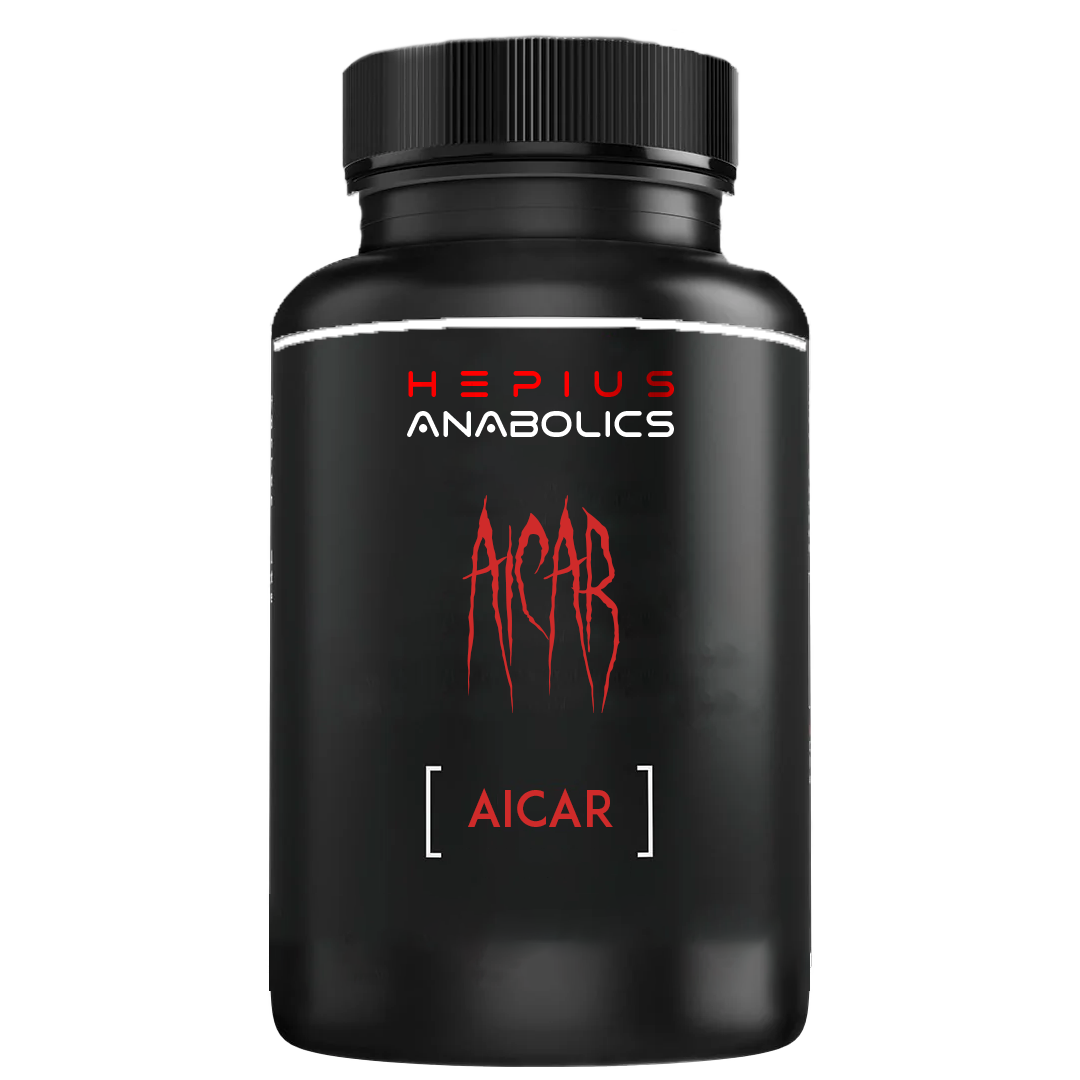Hepius
Aicar
Aicar
AICAR (5-Aminoimidazole-4-carboxamide ribonucleotide) is a drug initially developed for medical use to treat metabolic disorders. It has gained interest in sports and fitness circles for its purported benefits in increasing endurance and mimicking the effects of exercise at the cellular level.
How AICAR Works
AMP-Activated Protein Kinase (AMPK) Activation: AICAR activates AMPK, an enzyme that plays a key role in cellular energy regulation. AMPK activation leads to enhanced glucose uptake and fatty acid oxidation in cells, mimicking the metabolic effects of exercise.
Energy Regulation: By increasing the efficiency of energy use and boosting the body's metabolism, AICAR can improve endurance and athletic performance.
Potential Benefits
Increased Endurance: AICAR is known to enhance stamina and endurance, making it popular among endurance athletes such as cyclists and long-distance runners.
Fat Burning: By promoting fatty acid oxidation, it may help with fat loss and improve overall metabolic efficiency.
Muscle Preservation: AICAR can support muscle preservation during periods of intense training or caloric deficit.
Common Usage and Dosage
Oral Tablets: AICAR is sometimes available in oral tablet form. The typical dosage in research settings ranges from 10 to 50 milligrams per kilogram of body weight per day. However, in non-medical settings, users often take lower doses.
Cycle Duration: Usage patterns vary, but it is often used in cycles to maximize its performance-enhancing effects while minimizing potential side effects. Continuous long-term use is not recommended without medical oversight.
Side Effects and Risks
Unknown Long-Term Effects: The long-term safety of AICAR use in healthy individuals is not well-studied, and there could be risks associated with prolonged use.
Potential Cardiovascular Issues: Because it influences metabolic processes, there could be a risk of cardiovascular complications, particularly when taken at high doses.
Hypoglycemia: Since AICAR enhances glucose uptake into cells, there is a risk of hypoglycemia (low blood sugar levels), especially when combined with other substances that lower blood sugar.
Fatigue and Nausea: Users have reported feeling fatigued, nauseous, or dizzy as potential side effects.
Considerations
Medical Supervision: Use of AICAR should be done under strict medical supervision, particularly because of the lack of data on its safety profile in long-term or non-therapeutic use.
Doping Regulations: AICAR is classified as a performance-enhancing drug and is banned by the World Anti-Doping Agency (WADA). Athletes should be aware of the legal and ethical implications of its use.
Limited Research: Much of the available research on AICAR's effects comes from studies on animals or isolated cells, and human studies are limited. As such, the full range of effects and risks in humans is not fully understood.
Caution: Always prioritize safety and health. It is important to weigh the potential performance benefits against the possible health risks and legal consequences before considering AICAR or similar compounds.
Serving/Container
Serving/Container
100 tabs


